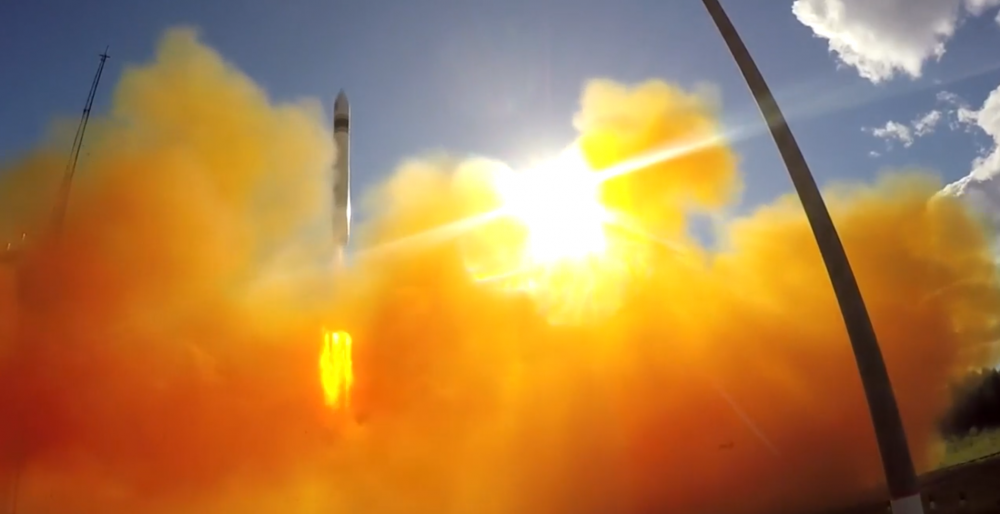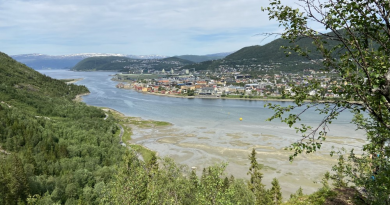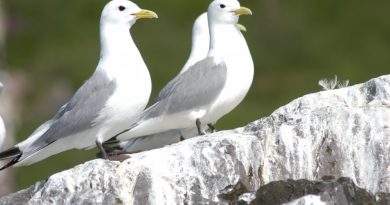Russian rocket that worried Inuit groups launched Saturday

Russia successfully launched a rocket into space on Saturday despite fears expressed by Inuit hunters in the eastern Canadian Arctic about the potential environmental impacts from its highly toxic rocket fuel.
A statement by the Russian ministry of defence said the Rockot rocket with a military satellite on board blasted off the Plesetsk cosmodrome in northern Russia at 17:00 local time.
The Rockot (Russian for rumble) launch vehicle, a repurposed Cold-War-era intercontinental ballistic missile redesigned to launch satellites instead of nuclear warheads, uses hydrazine for fuel, a highly toxic substance.
A stage of the launch vehicle was expected to fall into international waters of Baffin Bay between Canada and Greenland, but within Canada’s exclusive economic zone.
Canadian officials said the government monitored the launch and re-entry of debris closely.
No debris had been observed falling on Canadian territory as of Sunday morning, officials said.
The Russian federal space agency, Roscosmos, tweeted video of a rocket launch Saturday.
4 июня 2016 г. с космодрома Плесецк проведен пуск РН #Рокот с российским космическим аппаратом в интересах МО РФ.https://t.co/t0Ju6ue3KM
— РОСКОСМОС (@roscosmos) June 5, 2016
Environmentally sensitive region
Part of the launch vehicle is expected to come down in what is called the North Water Polynya, an 85,000-square-kilometre area of Arctic sea that naturally remains ice free year round.
The polynya (Russian for ice free water) is a vital habitat for narwhal, beluga, walrus and bowhead whales. Its waters attract shoals of Arctic cod and other fish species, which in turn feed thousands of seals, polar bears and millions of seabirds.
The area is a prime hunting ground for Inuit from Canada and Greenland.
Published reports from experts on the Russian space program suggest it’s normal for about 10 per cent of the fuel in the main stage to remain unburned, and an Arctic contaminant specialist at the University of Manitoba says the hydrazine fuel is known to persist in water.
Canadian officials said they expected “minimal environmental risks” from the launch.
Officials at Roscomos refused to comment on the possible environmental hazards of the launch, saying the ministry of defence is the lead agency on this file. However, no one was available to answer RCI’s questions on Monday.
There have been 26 launches of Rockot rockets from Plesetsk, about 800 km north of Moscow, since their maiden launch in May 2000, said a press release by the ministry.
With files from CBC News
Related stories from around the North:
Canada: Canadian web documentary highlights Arctic science, Eye on the Arctic
Finland: Northern lights could be visible from southern Finland this weekend, Yle News
Norway: Norway’s polar satellite centre, Deutsche Welle’s Iceblogger
Russia: Rocket fails, falls down near village in Russia’s North, The Independent Barents Observer
Sweden: Sweden’s Arctic space centre sets sights on satellite launches, Radio Sweden
United States: Auroral research rocket blasts into space from Alaska range, Alaska Dispatch News



